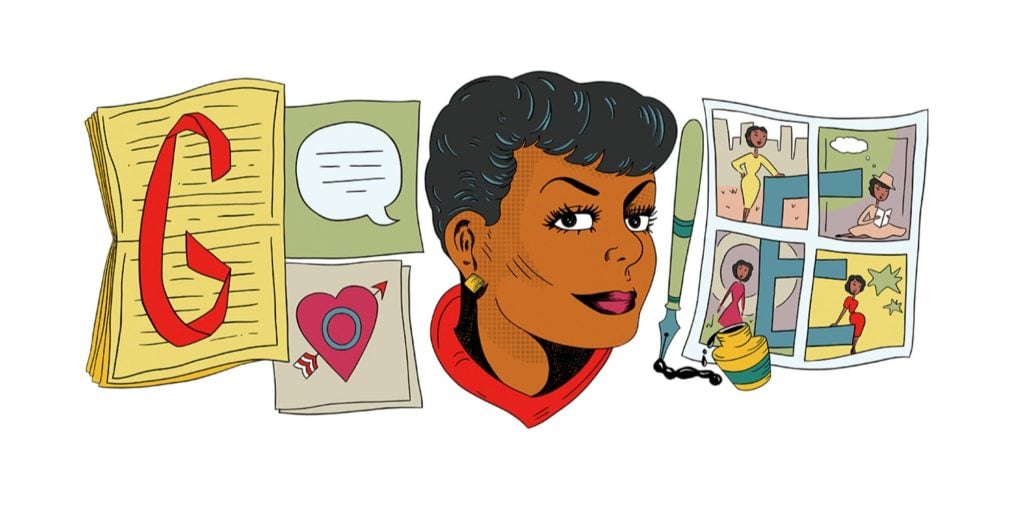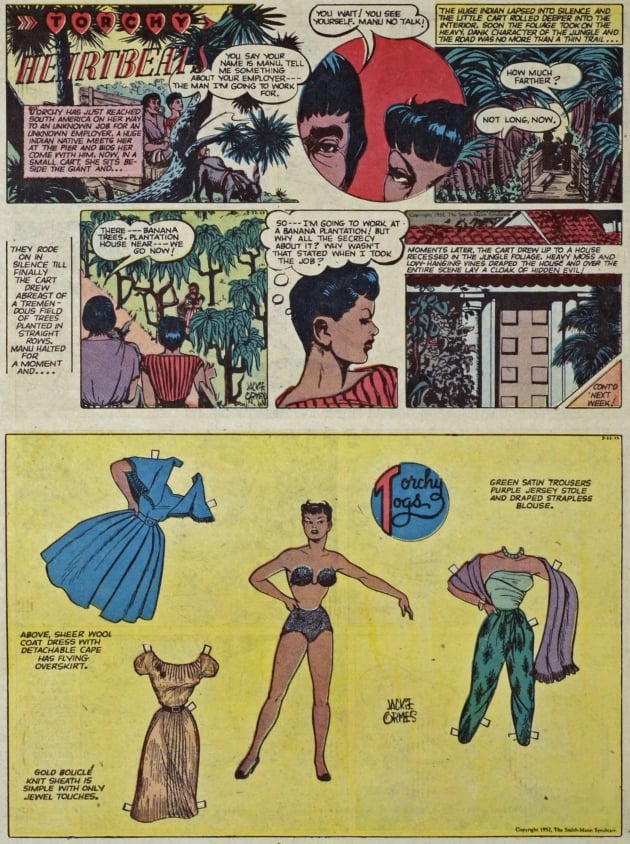People
Today’s Google Doodle Celebrates Pioneering Artist Jackie Ormes, the First Professional Black Woman Cartoonist in the US
The artist's longest-running strip was first published in 1945.

The artist's longest-running strip was first published in 1945.

Sarah Cascone

Google’s daily Doodle for September 1 honors Jackie Ormes, the first professional Black woman cartoonist in the US.
The occasion is the 75th anniversary of her longest-running comic strip, Patty-Jo ‘n’ Ginger, first published on September 1, 1945. The single-panel cartoon, which featured the precocious insight of two young sisters, ran for 11 years and inspired a toy doll from Terri Lee that eschewed common racial stereotypes.
To design its homepage tribute to Ormes, Google tapped Philadelphia-based artist Liz Montague.
“I drew a lot of inspiration from Jackie’s illustration style, such as the lines she uses as well as her compositions and layouts,” Montague told Google.
“Jackie is a huge inspiration for me.… The illustrations are immaculate, the humor is witty, the social criticism is bitingly accurate—her work is just the total package. She is why I create cartoons as social justice and why I feel valid doing it. Jackie is a genius and paved the way for so many of us as a pioneer in the cartoon and illustration world.”

Liz Montague. Photo courtesy of Google.
Born in Monongahela, Pennsylvania, on August 1, 1911, Ormes (whose birth name was Zelda Jackson) began drawing caricatures in the Monongahela High School yearbook.
As an adult, the self-taught artist addressed social issues in her work, using the funnies to espouse left-wing views on hot-button issues such as racial injustice, gender inequality, McCarthyism, and how pollution disproportionately affects African American communities.
“Her work was unique and wholly unprecedented. Not only were her lead characters female, they were strong, elegant, intelligent, urbane, opinionated, and witty and often leading extremely glamorous and cultured lives,” Josphine Liptrott wrote of Ormes in a biography for the Heroine Collective.

Jackie Ormes. Photo courtesy of Gayle Ormes Hawthorne.
“They challenged the derogatory caricatures of black people, and especially black women, which usually appeared in comics at that time.”
Ormes, who married hotel manager Earl Ormes in 1936, got her start as a proofreader at the Pittsburgh Courier, also working as a freelance writer and editor while pushing to publish her illustrations.
She got her wish in 1937 when her comic strip, Torchy Brown in Dixie to Harlem, made its first appearance nationally in the Courier’s 15 city editions. (Ormes later revisited the character in her final comic strip, Torchy in Heartbeats.)

A Torchy in Heartbeats comic by Jackie Ormes.
The comic, which recounted the teenage Torchy’s journey from a childhood in Mississippi to nightclub fame at the Cotton Club in New York City (and which was inspired by the Great Migration of the Black community from the American South) was the first nationally published strip by an African American woman.
Ormes died in 1985. She retired from drawing comics in 1956, but was posthumously inducted into the National Association of Black Journalists Hall of Fame in 2014. Her life and career were the subject of the 2008 book by Nancy Goldstein, Jackie Ormes: The First African American Woman Cartoonist.